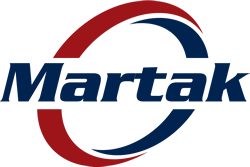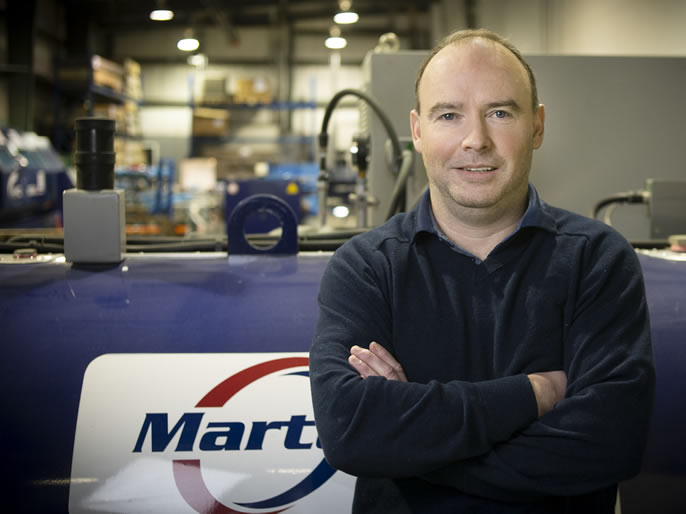
An Interview with Noel Sheehan
16 June 2021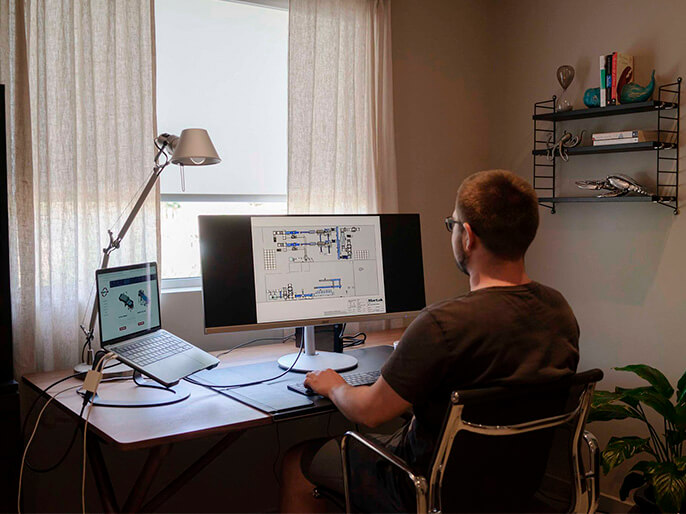
What unexpected benefits did 2020 bring Martak?
12 July 2021
An Interview with Noel Sheehan
16 June 2021
What unexpected benefits did 2020 bring Martak?
12 July 2021
We are the
MIDDLEMAN
Martak’s Director of Operations in Grindavík, Páll Már Magnússon, was recently interviewed by Fiskifréttir. He shares the story of his humble beginnings before he joined the company and how Martak became the leader in the shrimp processing industry.
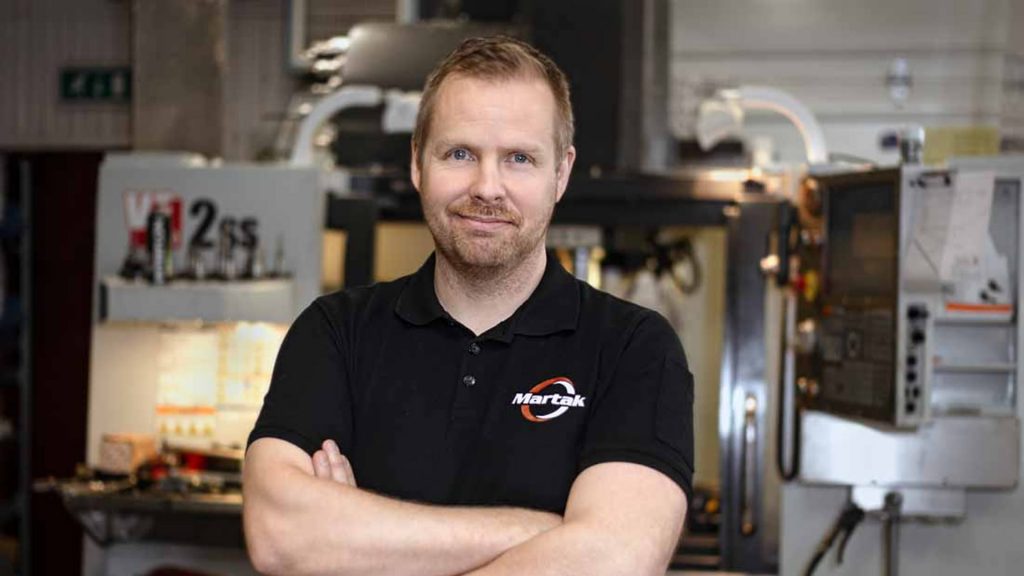
“It was an adventure”
“When I was a little boy in Grundarfjordur, we went to all the jobs in the fishing industry. We worked in saltfish, filleted fish, and we helped the fishermen get the new caught fish to the factory. We got a glimpse of different jobs within the fishing process. We experienced fishing large catches of one species and other times, less of other species. The practices, of course, took that into account,” said Páll Mar Magnússon, who now heads the service and technology company, Martak in Grindavík.
Pall Mar says the company’s structure is a bit similar to the experience of his generation within the fisheries sector. It is based on a long experience in the design and construction of fish processing equipment. Martak offers solutions for small and large fisheries companies in all areas aimed at increasing productivity and production quality.
“Grundarfjordur was the best working school imaginable. Society was such that it taught kids how to work. The jobs were actually training the children who would later work for them. As a result, we had incredible opportunities and insights into the industry. I later educated myself in electrical and mechanics and have worked in equipment and gadgets, which eventually led me to Martak. I’ve always lived with this experience from Grundarfjordur. Unlike many of my peers, I always had money because we always sorted spawn and salted fish. We also had the opportunity to experience work on trawlers and tugboats. It was an adventure, of course. I clearly remember Easter break, when Mói bought a fish in Sæfangi for us kids to skin and to earn income. That’s how life worked back then, then it changed. I remember when I was unloading fish from a trawler at the age of fourteen, and the harbourmaster came and asked if I wasn’t too young to be there, based on European rules. The working kids did not like this comment and started throwing new caught fish at him” says Pall Mar, laughing at the memory.
In this business for 35 years
Páll says his generation’s experiences and knowledge will come in handy later on. Now the route often lies in business for Martak domestically and around the world. Small and large fishing companies may be able to benefit from it. Overfishing often occurs when processing plants have a surplus of fish that they are unable to process. Then the national pride comes up with “Icelandic ingenuity,” and we get involved in solving the problem, often with the assistance of other companies in Iceland. Conditions are often such that smaller processing plants prevent investing in expensive and complex fish processing lines.
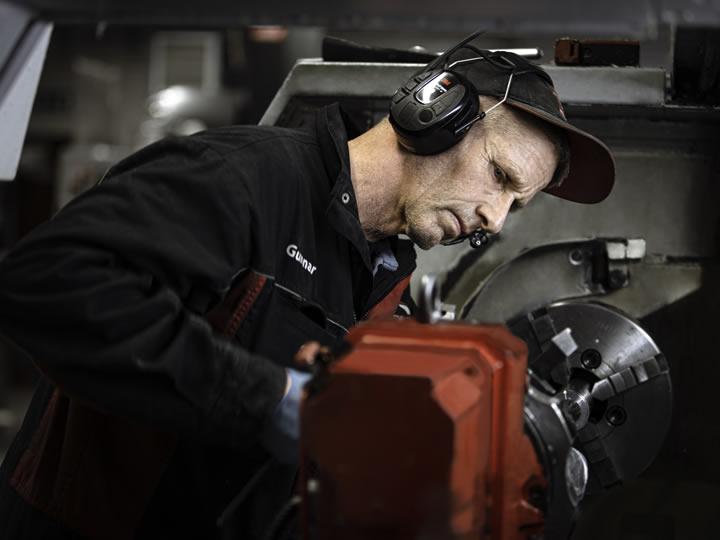
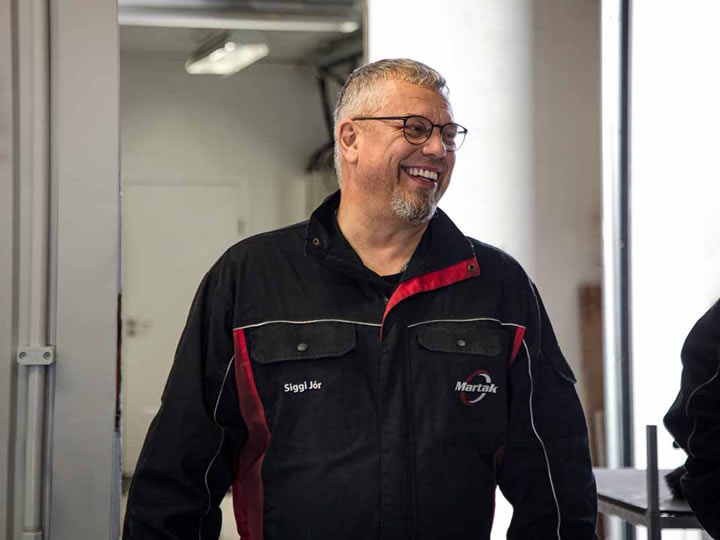
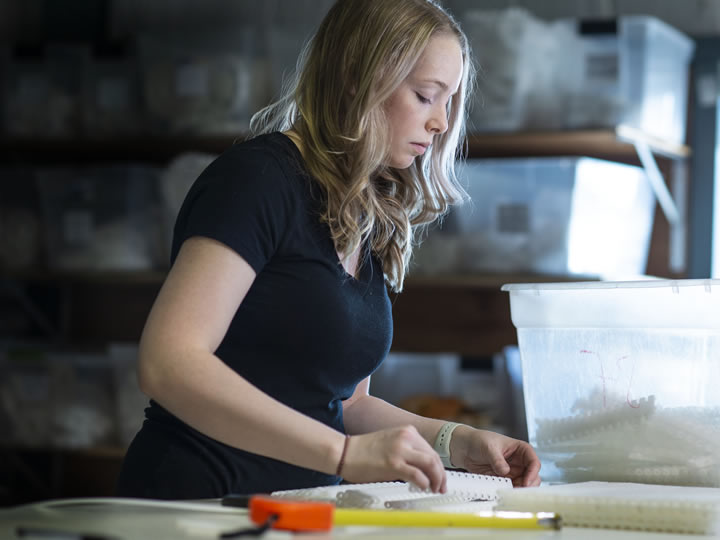
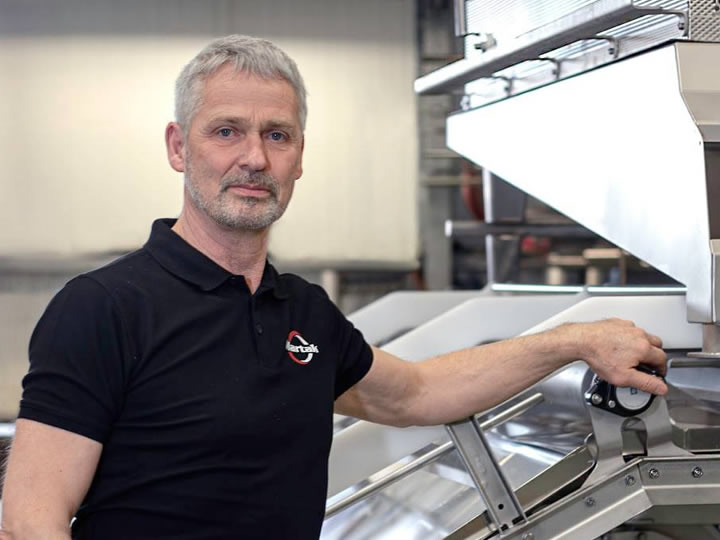
“The middleman is often missing, and we at Martak are the middleman. We’ve been in this business for 35 years, everything that has been designed at the company after all this time is still all there. Over the years, all our solutions have been tailored to the needs of every client. This flexibility has reflected our uniqueness, and after all these years, we still include it in our policy, and producing standard solutions is still on our agenda. The things we did twenty years ago, even three years ago, can be perfectly suited to fish processing elsewhere in the world and contribute to increased value creation.
This is the fun part of the job, finding solutions that are suitable for different customers. Working conditions or requirements differ for fisheries everywhere in the world. The fish stocks move around, and fishing collapses, but then other species appear,” said Páll Már, mentioning as an example of a collapse in cod fishing by Canadians and in Iceland. We often forget how far we have come in fish processing and fishing compared to other nations. It wasn’t long ago that the trawler came ashore in the village and landed everything in the freezer, and it all worked under the same roof. Now the fleet is controlled by processing plants that specialize in working on specific species or even sizes. Fish markets are then used as buffers both to get rid of or fill up the working days.
We Icelanders have managed to industrialize fish processing and have knowledge in equipment that is world-leading. Valka and the Skaginn have followed Marel’s footsteps and came up with unique solutions that paved the way globally. Nonetheless we are proud to say we often work with wild species and very demanding weather changes. You can say a lot about the quota system, but this is one of its positive consequences. We are already in the midst of a fourth industrial revolution that will change almost everything in our daily lives. These changes are now taking place faster than ever before in history. We in Martak are always under pressure to do better – both for ourselves and our clients. There are always new goals based on ever-changing realities.
Over the next decade, there will be increased pressure on the world’s food supply, and fish will become increasingly valuable. It is thought that the world needs 50% more food by 2050. We therefore always need to make more and better products from the ingredients available.
Added two designers
“I was in paradise for four years in Maine, USA, in the world’s most stylish lobster fishing area from 2000 to 2004. There they had cleaned up the cod strain, but as a result, the spread of lobster increased enormously. Lobster fishing is a very sustainable trap hunt and is applied to the lobster. A small lobster can escape from the traps, and unfortunately it takes no more than the sea to warm, and the lobster moves north. Now people need to consider other hunting options and possibly switch to networks, for example, we find ourselves in places like this and chasing this trend with our technological solutions,” says Pall Mar. He says that the ports of the fish processing plants in Iceland are historical sites of processing equipment that newer ones have replaced.
Martak has these drawings kept in a secure location which represents fully qualified equipment for jobs of all shapes and sizes around the world. That’s not to say that we have left innovation behind because, since Páll Már became the Director of Operations last fall, the company has increased their designers from one to three.
Páll Már himself had just returned from a work trip in a shrimp factory Kampa in Ísafjörður, where he replaced the rollers himself in the machines. He used the trip to visit a liver processing company that faces a large-scale supply of raw materials. When Pall Mar isn’t traveling around the globe you can find him at his desk at the headquarters in Grindavík where he is working on offers for fish processing worldwide.
Recently, we made a contract with a company in Canada to design and construct a perfect indoor saltfish plant factory. Martak also services shrimp and fish processing in Canada. There are numerous other projects in the pipeline.
“I am currently preparing a trip around Iceland to offer Martak’s solutions to companies to increase efficiency and margins in their operations. These are companies of all sizes. A large fish processing company may be having minor problems that we can solve and increase the margin. We can also enter smaller companies with solutions for their operations. The larger tech companies may not be in this market and are rather offering overall solutions that are not suitable for everyone. We are total ners and we say to corporate executives: “Solutions based on knowledge and dialogue create maximum margin,” says Pall Mar.
Share this post on social networks:
Share this post on social networks:
